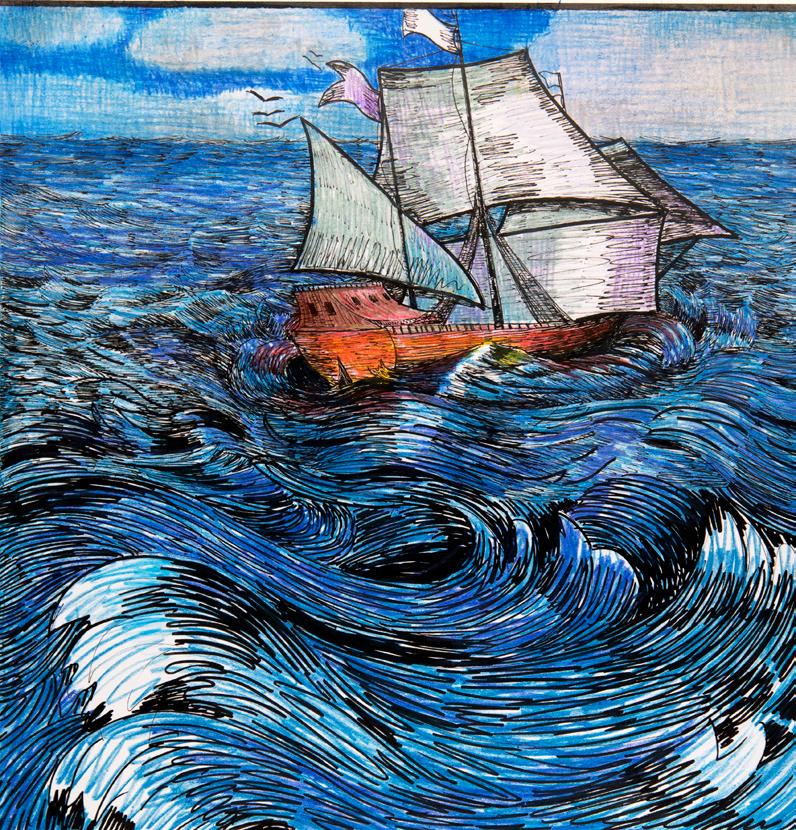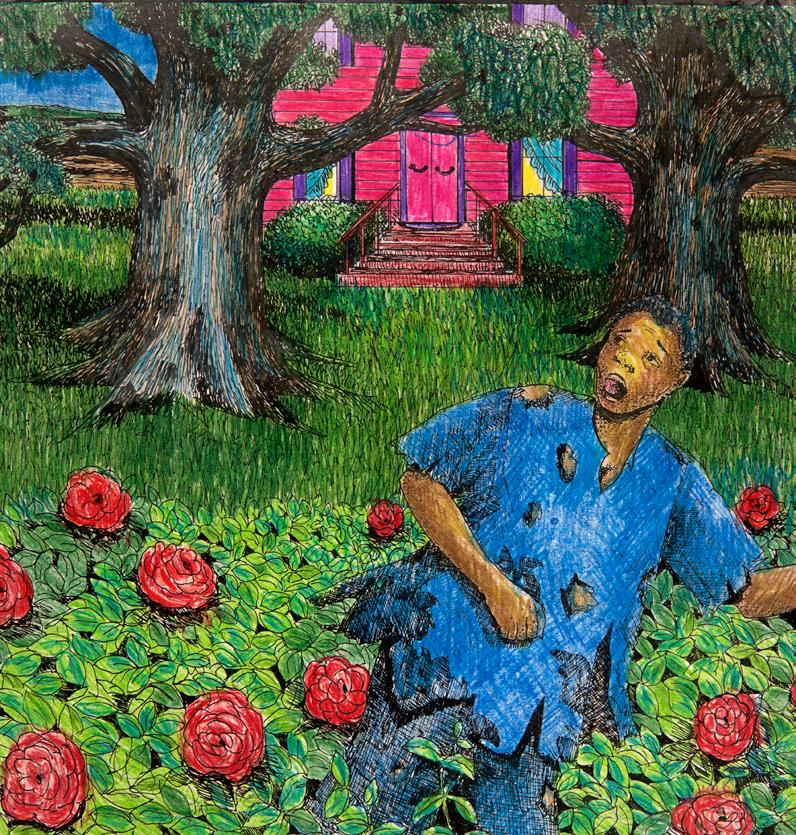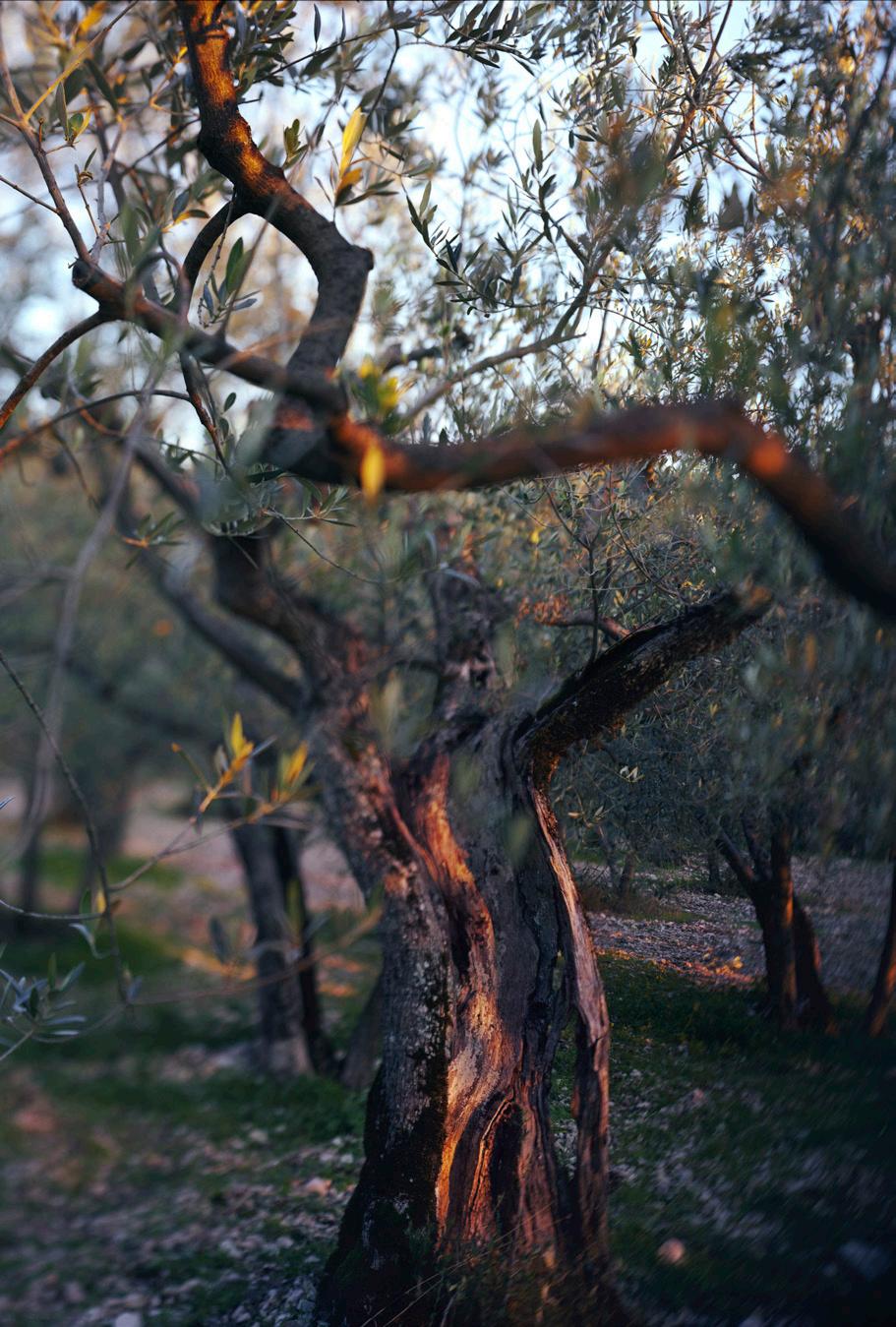
8 minute read
About Town
Spoleto ETC Happenings in 2020 – 2021
The stages of Spoleto Festival USA may have been dark in 2020, but Spoleto ETC (Engaging the Community)—the Festival’s community education and outreach initiative—was as active as ever. Spoleto ETC connects Festival artists and the broader community through three distinct avenues: tailored education programs for students; discussion series and partnerships with other area organizations; and investment in the advancement of young artists and arts administrators. Through meaningful dialogues, participatory workshops, and curriculum building, Spoleto ETC served more than 5,900 local, national, and international constituents in the past year.
Advertisement
IN-SCHOOL EDUCATION PROGRAMS
Omar Ibn Said Workbook
Illustrated by renowned artist Jonathan Green and written in partnership with South Carolina social-studies educators, this educational workbook introducing Omar Ibn Said was distributed to more than 3,000 students in the Charleston County School District this spring. The workbook is available online for teachers and parents to download and includes activities and prompts to aid in learning. Copies have been shared with Carolina Performing Arts at the University of North Carolina, Chapel Hill, and will also be housed in the Howard University library in Washington, DC, as a resource for educators.
Partnership with Engaging Creative Minds
The Festival partnered with Charleston organization Engaging Creative Minds to craft curriculum related to Omar Ibn Said’s autobiography and the history of enslaved Muslims in South Carolina before the Civil War. This curriculum was introduced into public eighth-grade classrooms across the tri-county area this spring. Additionally, students in four schools took part in workshops with Charleston-based teaching artists—Marcus Amaker, Nakeisha Daniel, and Marielena Martinez—who brought their individual perspectives to Said’s story through hands-on visual, literary, and performing arts projects.
Chamber Music in the Schools
This season, several Festival artists visited area schools virtually. In May, Director of Chamber Music Geoff Nuttall, violist and composer-in-residence Jessica Meyer, pianist Gilles Vonsattel, clarinetist Todd Palmer, and cellist Paul Wiancko took to the Dock Street Theatre stage to record two concerts--one distributed to elementary school students, and one shared with middle and high school students in the Charleston County School District.
ADVANCEMENT FOR YOUNG ARTISTS
Workshop with Charleston Symphony Youth Orchestra
In early May, Festival Resident Conductor and Director of Orchestral Activities John Kennedy led a virtual workshop with four student instrumentalists of the Charleston Symphony Youth Orchestra. During the event, Kennedy shared various artistic and technical aspects a conductor or orchestra director listens for in auditions. He worked with the students master-class style as they played excerpts of audition pieces and offered pointers for students and attendees.
DISCUSSIONS AND COMMUNITY PARTNERSHIPS
Exploring Omar Discussion Series
Beginning in October 2020, the Festival re-introduced Exploring Omar. This eight-part virtual discussion series expands upon the historical context and cultural significance of Omar, the Festival’s upcoming world premiere opera based on the life of Omar Ibn Said. Each discussion featured expert panelists in the fields of religion, education, culture, and the arts to create connections between Omar and modern-day ideas. All discussions were recorded and are available to watch on the Festival’s YouTube channel.
Azure Virtual Offerings with HEART
Variations of Azure Family Concerts—engaging performances tailored for families and individuals who are on the autism spectrum or exhibit similar forms of neurodiversity—were shared with Charleston-based nonprofit HEART. This fall and spring, the Festival facilitated several virtual workshops led by artists from the Chamber Music series including pianist Stephen Prutsman (who founded Azure Family Concerts), Director of Chamber Music Geoff Nuttall, cellist Arlen Hlusko, and composer-in-residence Jessica Meyer. In May, pianist Gilles Vonsattel, clarinetist Todd Palmer, and cellist Paul Wiancko joined Meyer and Nuttall at the Dock Street Theatre to record a concert specifically for the HEART-ists.
Book Talks with Charleston County Public Library
The Festival and Charleston County Public Library partnered to present three virtual book conversations, each reflecting themes from the Festival’s upcoming opera Omar. In December, the group examined Isabel Wilkerson’s Caste: The Origins of Our Discontents. In February, the Festival and the Library hosted a discussion on Lawrence Hill’s Someone Knows My Name. And for the third and final discussion in May, the focus was on Claudia Rankine’s Just Us.
Spoleto ETC is made possible by an anonymous donor; Carol H. Fishman, in memory of Leo Fishman; The Danielle Rose Paikin Foundation; Dominion Energy Charitable Foundation; Leslie Aucoin and Vernon Drew; The Samuel Freeman Charitable Trust; Thomas S. Kenan Institute for the Arts; and SC Humanities. For more information on how to help expand programs like these, please visit spoletousa.org/support.
Illustrations by Jonathan Green from the Omar Ibn Said Workbook.



BETWEEN FRIENDS
Nigel Redden and JoAnn Verburg in Conversation
Long before he was the General Director of Spoleto Festival USA and long before celebrated photographer JoAnn Verburg received a mid-career retrospective at New York’s Museum of Modern Art, Nigel Redden remembers a knock on the front door of his Minneapolis home. At the time, he was the Director of Performing Arts at Walker Art Center and, after hours, renovating a five-bedroom house that provided lodging for some of the performers he programmed. On the other side of the door was Verburg, a visiting artist at the Minneapolis College of Art and Design, inquiring about a room for rent.
“I remember when I moved in in January, it was the coldest I had ever been, partly because it was Minnesota and partly because Nigel was working on the electric wiring with the doors open,” Verburg reminisces. “Trisha Brown Dance Company was also there that first month. And after their rehearsals during the day, the dancers would gather in the kitchen, talking about the making of their new piece. I knew nothing about dance, but I was just so interested—I love process.”
Looking back, Verburg relishes that time in Redden’s house and considers it one of the most influential turning points of her career. “I started photographing people who were dancers, and I began thinking about time and the body—all things that had not been aspects of my life as an artist before. My photography blossomed.”
Redden and Verburg remained close friends through the years, and for his final Spoleto season, Redden asked Verburg to choose one of her works to adorn the Festival poster. Titled Between, the photograph (2021, 48" x 32", archival ink on paper) captures one of Verburg’s signature subjects: olive trees in Spoleto, Italy. Even this has ties to Redden— he suggested Spoleto as a honeymoon destination for the photographer and her husband, poet Jim Moore, and they have since made it an annual pilgrimage.
Ahead of Spoleto’s 2021 season and Redden’s retirement, the friends shared a conversation via Zoom about art, what guides their work, and Verburg’s latest project.
JoAnn Verburg: Nigel, we met a long time ago, and I’ve known two of the people you worked with early in your career: Ellen Stewart and Martin Friedman. And while those

JoAnn Verburg, BETWEEN, 2021, ink on paper, courtesy of Pace Gallery and G. Gibson Projects.


Nigel Redden and JoAnn Verburg in conversation via Zoom.
two figures are so different on the surface, almost opposite, I’m wondering if their spirits sit on your right and left shoulders, asking questions or nagging at you.
Nigel Redden: Ellen, the founder of LaMama Experimental Theater Club in New York, gave me a job right after I graduated college. And Martin—the longtime director of Walker Art Center in Minneapolis, who basically recreated what had been a rich man’s private museum into a real powerhouse of contemporary art—gave me my first really responsible job. In some ways, they were remarkably alike. They both operated on instinct. Ellen used to say she had “beeps” about people. Martin didn’t use those words at all, but he would intuitively feel something was right.
JV: They both had the scope to understand when something needed to be tweaked to keep the thing afloat, and their institutions are so successful and ongoing—all these years later. They were intuitive and responsive to changes in the art world, visual and performing.
NR: Martin wanted to constantly reinvent the Walker, and Ellen was constantly inventing. She had a vision that was also flexible.
JV: So, how does Spoleto Festival USA fit into those ideas?
NR: A festival reinvents itself. A festival is a kind of Phoenix that rises from each year’s ashes; it’s an institution that defies being institutional. Yes, Spoleto is an institution—we own real estate; we have assets. But I think what makes Spoleto Festival USA so special is the program—the artists we work with change year to year. There are threads that remain constant, but there are new juxtapositions of theater and dance and music of various sorts each year. We are inspired by the possibilities that Charleston offers. And I think we’ve remained true to what was the founding inspiration—that the Festival should be profoundly multidisciplinary at its heart.
JV: Once, when Jim and I came to the Festival, I remember you talking about how a festival is seeing one thing and then another thing and then another thing. Can you talk about how the performances build on each other?
NR: One of the wonderful things about a festival is that everyone can have a different experience and create their own itinerary. And to some extent, if you’re seeing multiple performances, you begin to see connections— human connections—between disparate things. You absolutely see things differently than you would if each performance were in isolation.
JV: I want to ask a follow-up question to that—and it has to do with how you’re preparing the dinner party, so to speak. The analogy being, when you’re hosting a dinner party, you weigh which guests to invite, how to seat them, and which courses to prepare. As the director of Spoleto, do you think Oh, I love this person’s work, but I’ll wait until it’s a little more mature. Or, I have to bring this artist’s work to balance this other piece?





